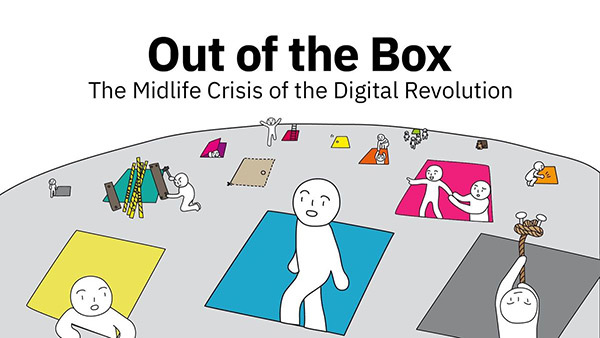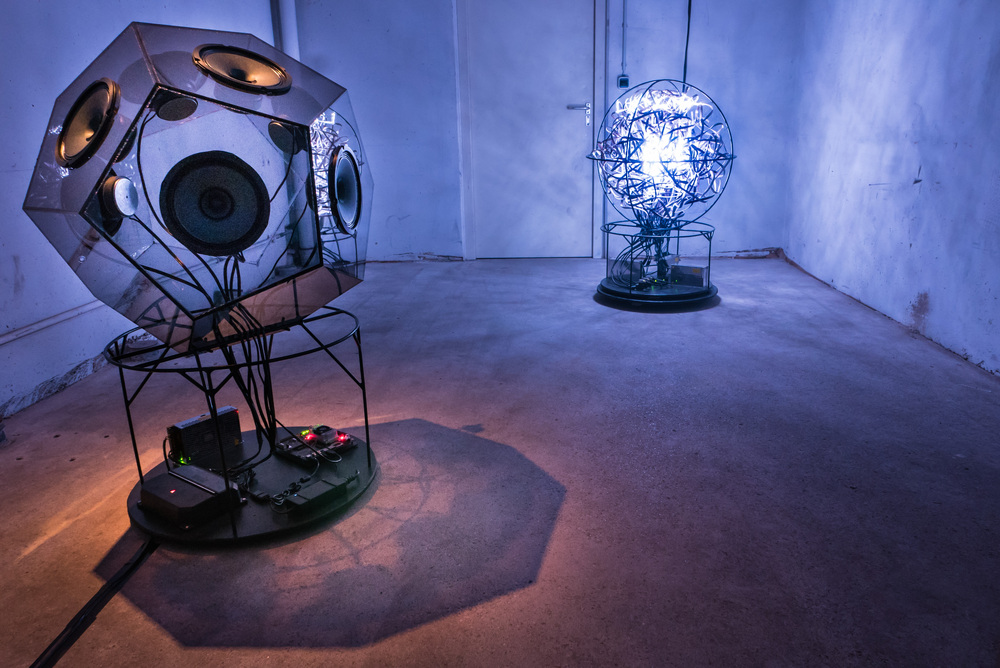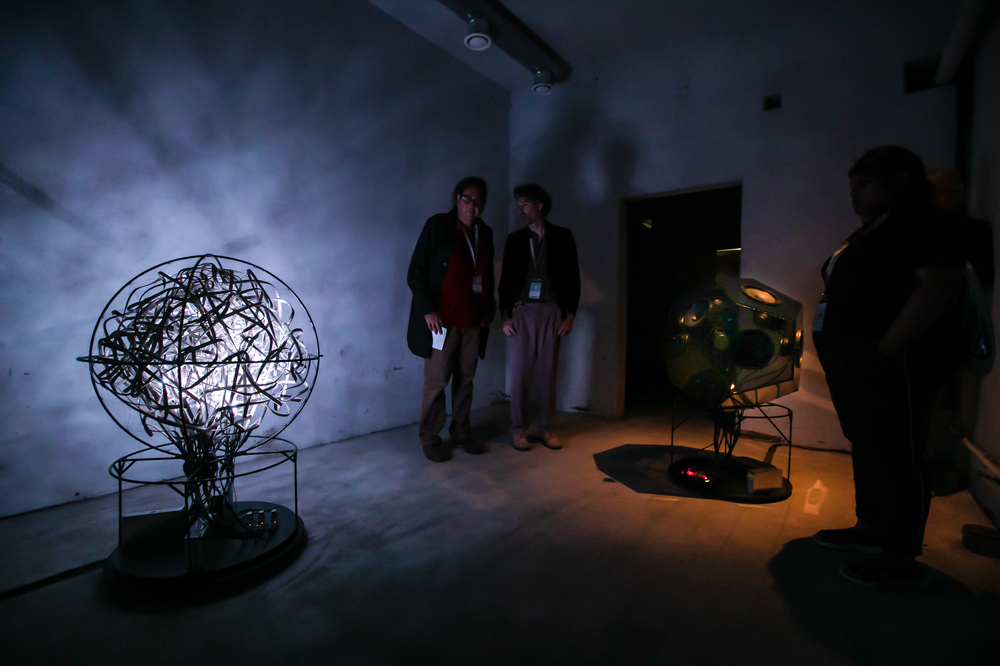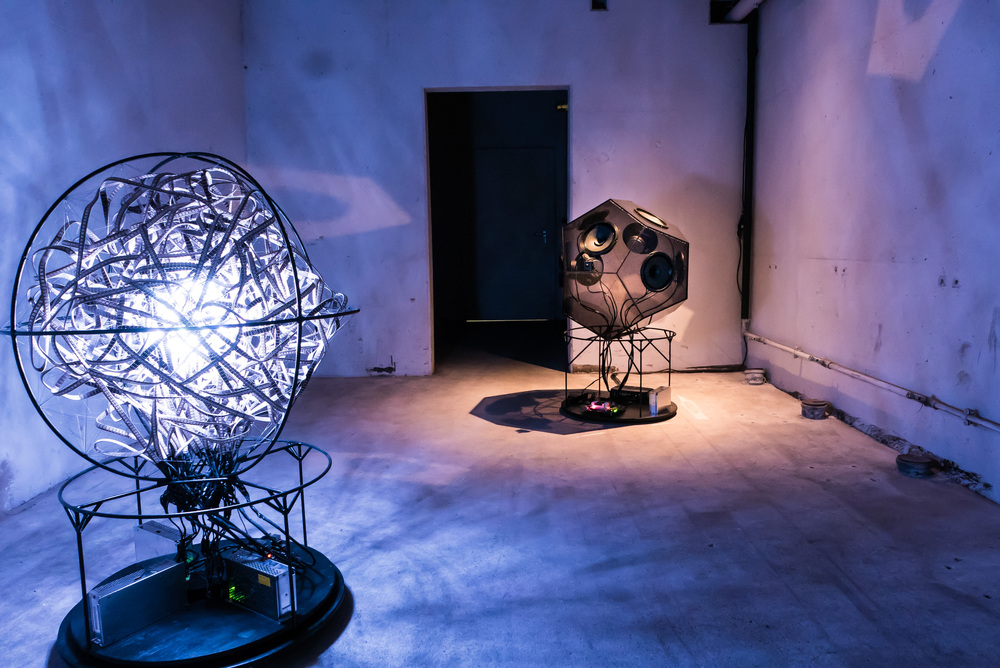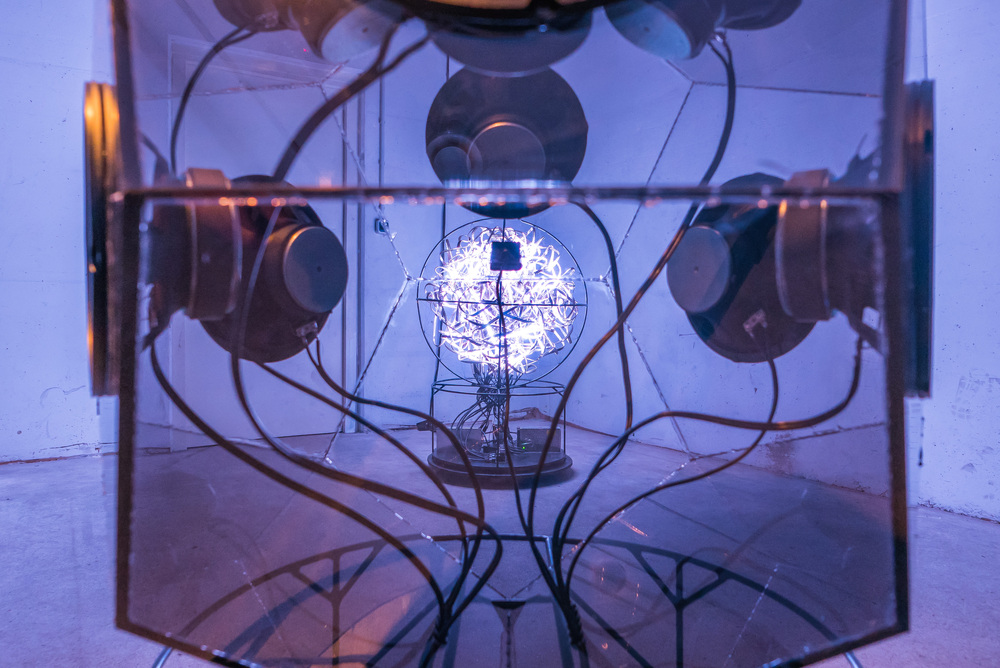HUMAN LIMITATIONS — LIMITED HUMANITY
It is perhaps one of the most inherent traits of humanity to strive after more, to explore the unexplored, to push our own limitations over and over again — as individuals, and as society. Early on we created tools and technologies to survive and facilitate our daily life, and we have always used them to form the world we live in, sometimes with unforeseen impacts. With the powerful technologies at hand today — from bioengineering to artificial intelligence — it is more important than ever to reflect on the way we want to use them collectively. At its core, the exhibition Human Limitations — Limited Humanity revolves around the relationship between humanity and the environment, and our limitations therein. What socio-ethical obligations arise from our present technologies and our ever-increasing interaction with nature? The first part, “Human Limitations,” addresses the topic on an individual level. With today’s body extensions, microchip implants or genetic editing methods like CRISPR-Cas9, we have reached a point where we can deeply adapt and alter the human body, which leaves us with the question: To what extent will we be dependent on our body enhancements in the future? “Limited Humanity” approaches the question of societal limitations, which have been — among others — clearly exposed in light of recent issues like the debates on refugees, global warming, mass surveillance or big data: rather than challenging our sense of community, discussions on sociopolitical problems should strengthen it. Cooperation is key when tackling the complex challenges of our time, for no individual being can see all their far-reaching implications alone. Technology is, taken by itself, neither a friend nor an enemy in this world: it is what we make of it.
with: Thom Kubli (DE/CH) with ZHAW/ Sven Hirsch (DE), Ralf Baecker (DE), Marko Peljhan (SI), Matthew Biederman (CA/US), Michael Candy (AU), Azumi Maekawa (JP), Shunji Yamanaka (JP), Helena Nikonole (RU), Dmitry Morozov / ::vtol:: (RU), So Kanno (JP), Saša Spačal (SI), SAINT MACHINE (RO), Luís Graça (PT), Marta de Menezes (PT), Kuang-Yi Ku (TW), Ai Hasegawa (JP), Maja Smrekar (SI), AnotherFarm (JP), Špela Petrič (SI), Jenna Sutela (FI), Scott Eaton (US/UK), Manuel Cebrian (ES), Zivvy Epstein (US), Joyce Feng (US), Matt Groh (US), Nick Obradovich (US), Iyad Rahwan (SY), Andy Gracie (UK), Amir Bastan (IR), Johannes Braumann (AT), Y2K — Chiao-Chi Chou (TW), You-Yang Hu (CN), AATB — Andrea Anner (CH), Thibault Brevet (FR), AROTIN & SERGHEI (AT/RO/DE/FR), Projet EVA — Etienne Grenier (CA), Simon Laroche (CA), Akinori Goto (JP), Klaus Spiess (AT), Lucie Strecker (DE), Aksiniya Peicheva (BG), Etsuko Ichihara (JP), ISID OPEN INNOVATION LAB. (JP), H.O (INT), Samuel Leder (US), Ramon Weber (CH), Hyun Parke (KR/US), Jinoon Choi (KR), Sookyun Yang (KR), Memo Akten (TR), Vladan Joler (RS), Kate Crawford (AU), Vladan Joler (RS), Nye Thompson (UK), Joy Buolamwini (US), Birgitte Aga (UK), Coral Manton (UK), Caroline Sinders (US), Sarah Petkus (US), Emanuel Gollob (AT), Takayuki Todo (JP), Jessica In (UK/AU), Ilmar Hurkxkens (NL), Fabian Bircher (CH), Oxfordians (UK, INT), Aidan Meller (UK), Lucy Seal (UK), Adam Harvey (US), Jules LaPlace (US), Charlotte Jarvis (UK), Quimera Rosa (ES/AR/FR), Margherita Pevere (IT/DE), Marco Barotti (DE/IT), Joana Moll (ES), DISNOVATION.ORG (FR/PL), MAEID — Daniela Mitterberger (AT), Tiziano Derme (IT/AT), Birk Schmithüsen (DE),
